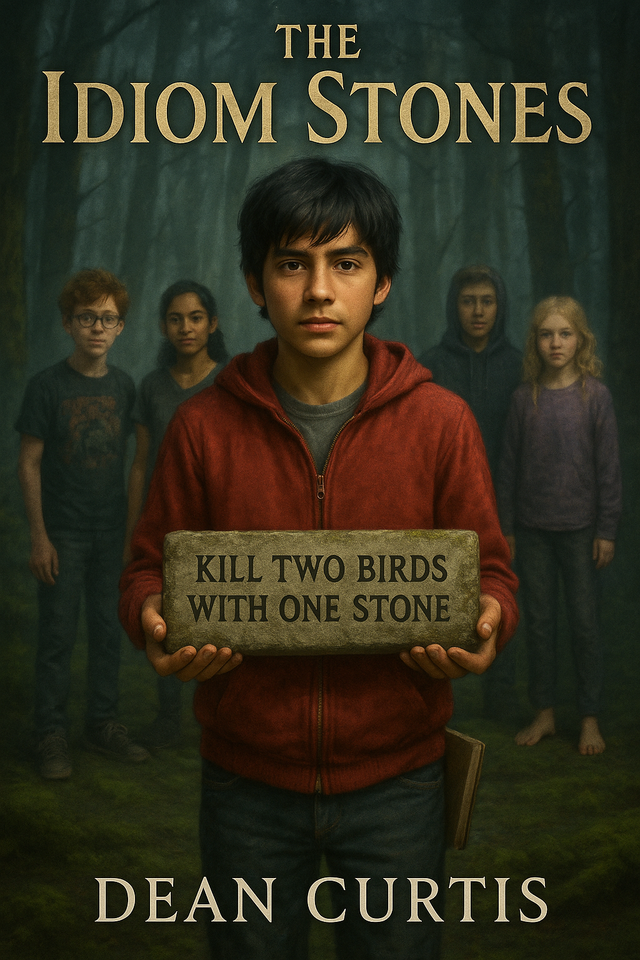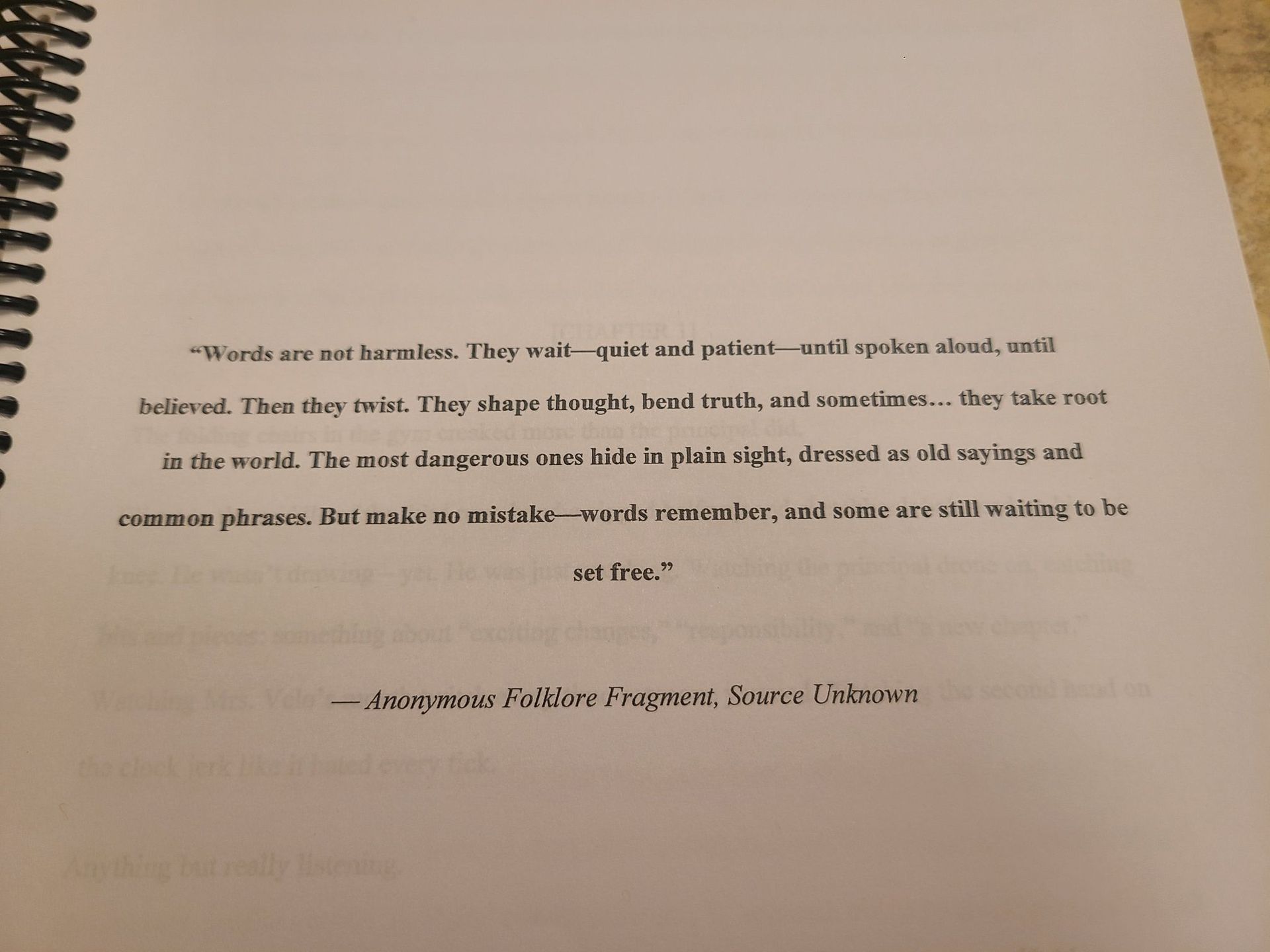October 29, 2025
When I first sat down to write The Idiom Stones, I gave myself a goal: two and a half hours a day, every single day, until it was done. No excuses. No “I’ll get to it tomorrow.” Just a quiet promise to myself to show up and write. And somehow, I did. For three months straight, I carved out that time each day. Some days the words came easily; other days, I stared at the blinking cursor, willing a sentence to appear. But I stayed with it, and after ninety days or so, I looked up and realized I had something resembling a complete manuscript—61,000 words. A whole book. It felt surreal to see that word count staring back at me. For a brief moment, I thought, That’s it—I’ve done it. I’ve written a novel. What I didn’t realize then was how much of the journey still lay ahead. It’s funny how the word complete can be misleading. You think it means finished, polished, done. But in writing, the first draft is really just the beginning. It’s the framework of the house, not the finished home. You can walk through it and recognize the shape of what it’s meant to be, but it still needs walls, paint, light, and a few doors that actually close properly. I learned that lesson quickly after sharing my manuscript with what I proudly called my “focus group.” There were ten readers in total—friends, colleagues, and fellow book lovers who volunteered to read an early version. Naively, I expected they’d find the odd typo or a sentence that could use tightening. Maybe someone would question a character’s choice or suggest a stronger ending to a chapter. Instead, what I received was far more valuable. Some readers left just a comment or two, small things I could fix in a single sitting. Others filled pages with notes, ideas, and thoughtful observations. They caught inconsistencies I hadn’t noticed, moments where a character’s reaction didn’t feel true, or scenes that needed more emotional weight. A few even spotted connections I hadn’t intended but decided to keep because they made the story stronger. It was humbling—and eye-opening. At first, I’ll admit, it stung a little. When you spend months living inside a story, you start to see it as something personal, almost sacred. Every line feels deliberate. Every word feels necessary. And then someone points to a paragraph you loved and says, “This doesn’t quite work,” or “I’m confused here.” You nod politely, but inside you think, Wait… what do you mean? But after a day or two, I started to see what they meant. They weren’t breaking my story—they were helping me build it better. I can’t overstate how grateful I am for those readers. Their dedication, their honesty, and even their disagreements pushed the book to a place I couldn’t have reached on my own. Some of them only offered a few comments, but they noticed things others didn’t. Others gave detailed feedback that challenged me to rethink entire sections. Every suggestion, big or small, became part of the process. And that’s when I realized something else: writing a book isn’t a solitary act, not really. It starts that way, sure—just you, the keyboard, and your imagination—but at some point, you need other eyes, other hearts, to help you see what your own can’t. The story may come from one person, but it grows through many. Looking back now, I see those first three months for what they were: the sprint that leads to the marathon. Writing the first draft was exhilarating, but finishing it was not the end—it was the invitation to begin again. To go deeper. To see the story not as it was, but as it could be. The Idiom Stones is still evolving. It’s slowly becoming the story I want it to be—the one I imagined when I first dreamed of those strange, yellow stones half-buried in the forest. I’m not rushing the process anymore. I’ve learned that great stories take time, and sometimes, they need a few generous readers to hold up a mirror and show you what’s missing. To those ten early readers—my focus group, my first audience—I’ll always be grateful. You reminded me that writing isn’t just about words on a page. It’s about connection, reflection, and the quiet courage to make something better than it was yesterday. And to anyone following along: if you’ve ever thought about writing a book, I hope this encourages you to start. Just start. Write for two hours a day, or twenty minutes, or however long you can. The first draft will come faster than you think—and the real work, the meaningful work, begins the moment you finish it.





